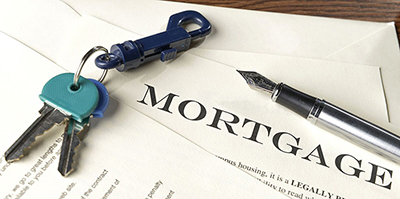
MBA Weekly Applications Survey Feb. 2, 2022: The Race to Refinance is On

Mortgage interest rates reached their highest level in nearly two years, driving a rush for borrowers to refinance before they go higher, the Mortgage Bankers Association reported Wednesday in its Weekly Mortgage Applications Survey for the week ending January 28.
The Market Composite Index increased by 12 percent on a seasonally adjusted basis from one week earlier. On an unadjusted basis, the Index increased by 15 percent from the previous week.
The unadjusted Refinance Index increased by 18 percent from the previous week but was 50 percent lower than the same week one year ago. The refinance share of mortgage activity increased to 57.3 percent of total applications from 55.8 percent the previous week.
The seasonally adjusted Purchase Index increased by 4 percent from one week earlier. The unadjusted Purchase Index increased by 12 percent from the previous week and was 7 percent lower than the same week one year ago.
The FHA share of total applications decreased to 7.7 percent from 8.6 percent the week prior. The VA share of total applications decreased to 9.1 percent from 9.9 percent the week prior. The USDA share of total applications decreased to 0.4 percent from 0.5 percent the week prior.
“Despite the increase in rates, refinance applications were up 18 percent, driven mainly by a 22 percent jump in conventional applications,” said Joel Kan, MBA Associate Vice President of Economic and Industry Forecasting. “There has likely been some recent volatility in application counts due to holiday-impacted weeks, as well as from borrowers trying to secure a refinance before rates go even higher.”
Kan noted purchase applications also increased in the final full week of January but remained 7 percent lower than a year ago; the average purchase loan size hit a new survey high again at $441,100. “Stubbornly low inventory levels and swift home-price growth continue to push average loan sizes higher,” he said.
MBA reported the average contract interest rate for 30-year fixed-rate mortgages with conforming loan balances ($647,200 or less) increased to 3.78 percent from 3.72 percent, with points decreasing to 0.41 from 0.43 (including origination fee) for 80 percent loan-to-value ratio loans. The effective rate increased from last week.
The average contract interest rate for 30-year fixed-rate mortgages with jumbo loan balances (greater than $647,200) increased to 3.59 percent from 3.56 percent, with points decreasing to 0.31 from 0.38 (including origination fee) for 80 percent LTV loans. The effective rate increased from last week.
The average contract interest rate for 30-year fixed-rate mortgages backed by FHA increased to 3.86 percent from 3.69 percent, with points decreasing to 0.55 from 0.61 (including origination fee) for 80 percent LTV loans. The effective rate increased from last week.
The average contract interest rate for 15-year fixed-rate mortgages increased to 3.01 percent from 3.00 percent, with points increasing to 0.41 from 0.39 (including origination fee) for 80 percent LTV loans. The effective rate increased from last week.
The average contract interest rate for 5/1 adjustable-rate mortgages decreased to 3.09 percent from 3.18 percent, with points increasing to 0.35 from 0.33 (including origination fee) for 80 percent LTV loans. The effective rate decreased from last week.
The ARM share of activity increased to 4.5 percent of total applications.
The survey covers more than 75 percent of all U.S. retail and consumer direct residential mortgage applications and has been conducted weekly since 1990. Respondents include mortgage bankers, commercial banks and thrifts.
